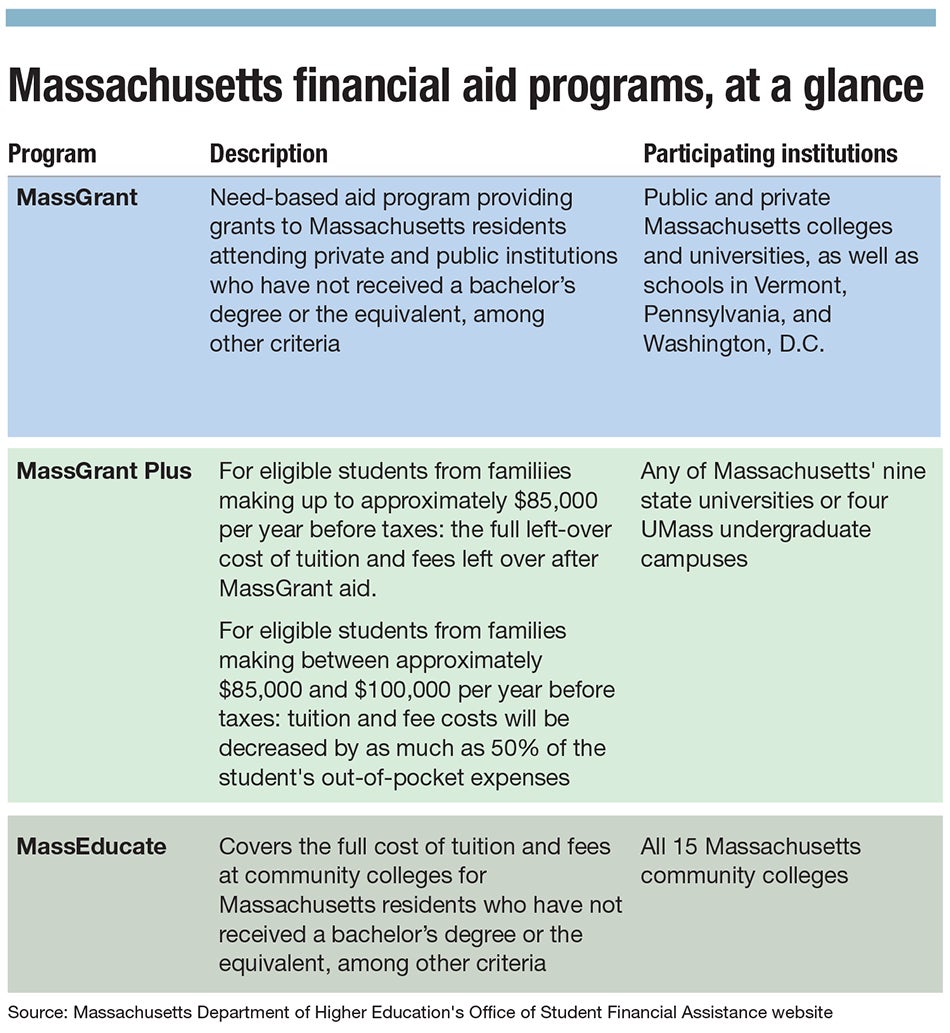The College of the Holy Cross in Worcester increased its full-tuition grants to students whose families make $100,000 a year or less.
Get Instant Access to This Article
Subscribe to Worcester Business Journal and get immediate access to all of our subscriber-only content and much more.
- Critical Central Massachusetts business news updated daily.
- Immediate access to all subscriber-only content on our website.
- Bi-weekly print or digital editions of our award-winning publication.
- Special bonus issues like the WBJ Book of Lists.
- Exclusive ticket prize draws for our in-person events.
Click here to purchase a paywall bypass link for this article.
In October, the College of the Holy Cross in Worcester increased its full-tuition grants to students whose families make $100,000 a year or less with reasonable assets.
The college originally implemented its full-tuition grants in its 2022-2023 academic year at a $75,000 threshold to ensure low- and middle-income families saw the college as a viable option, stemming from the belief that education should be accessible for all, regardless of income.
Also this fall, the first cohort of students benefiting from the state’s new MassEducate program entered their classrooms, receiving their community college education for free.
Whether they’re public or private institutions, colleges and universities throughout Central Massachusetts and the state as a whole are working to make higher education more accessible for more student demographics, with impacts likely to present themselves in a more diverse and educated workforce.
Commitment to affordability
“As a Jesuit Catholic institution, we're committed to affordability and access for all students, and this is an actual continuation of that commitment,” said Cornell LeSane, vice president for enrollment management at Holy Cross.

Raising the initiative’s threshold was an effort on the college’s part to best support its students as both annual tuition and cost of living increase. The school’s tuition for the academic year 2024-2025 is $63,650, according to Holy Cross’ website. When adding in fees, including housing and a food plan, that number increases to $83,320.
“We are truly trying to live our mission by providing opportunities such as this,” said LeSane.
Finances are a top concern for students when selecting a college, said Mike Crowley, vice president for enrollment management at Nichols College in Dudley.
“Obviously finances weigh into people's decisions, and we wanted to provide that accessibility for students,” said Crowley.

In total, the college provides Worcester County students with about $7 million in its own scholarships and grants per year, averaging to about $23,000 per student per year, he said. In addition, students are offered endowed scholarships who meet varying specific criteria set by individual donors.
To incentivize students to visit Nichols’ campus during their application process, the college affords any accepted student who had visited Nichols and applied by Dec. 15 grants up to $3,000 per year.
“One of the things that we view as being really important for students looking at Nichols is to spend time with us on campus and getting a real understanding of what it's like to be a student here at the college,” said Crowley
Each year, Nichols conducts an assessment of its financial aid offerings, determining whether its aid strategy is as effective as it can be and exploring what kind of enhanced offerings are possible.
“Each year brings new opportunities and new needs for students, and we want to address those,” said Crowley.
State-funded opportunities
The MassGrant program offers need-based financial assistance to Massachusetts residents attending public and private Massachusetts colleges and universities who have not received a prior bachelor's degree or its equivalent.
In 2018, the MassGrant program was bolstered by MassGrant Plus, covering the rest of an eligible student’s cost of tuition and fees for whose families make about $85,000 per year before taxes to attend community college, one of the state’s nine public universities, or one of four UMass undergraduate campuses.
For students whose families make up to $100,000 per year before taxes, the program will reduce their out-of-pocket expenses for tuition and fees up to 50%.

In 2023, the state launched its MassReconnect program, allowing Massachusetts residents 25 years or older who hadn’t received a bachelor’s degree to obtain an associates degree or certificate through any of the state’s public community colleges for free, regardless of income. In the academic year 2023-2024, the first year the program was initiated, the state’s community colleges experienced a nearly 45% increase in enrollment for students 25 and older from the previous year with more than 4,500 students receiving MassReconnect grants, according to the DHE data.
A year later in fall 2024, free community college education became available through the MassEducate program for all Massachusetts residents who had not earned a bachelor’s degree. Enrollment numbers for this current semester show a 14% increase from the year prior, according to DHE data.
“We focus a lot of effort with getting students of color, underrepresented students, to consider college as a viable option and targeting information and hoping to get them to enroll in college. I think that it ultimately, we hope, will lead to more people in the workforce,” said Clantha McCurdy, the Massachusetts Department of Higher Education’s senior deputy commissioner of access and student financial assistance.

Diversifying the workforce
Since implementing its full-tuition grant program, Holy Cross has seen an increase in its population of students of color. In the academic year 2022-2023, 22.3% of the Holy Cross student body was made up of students of color. Two academic years later, that percentage has risen more than five percentage points to 27.7%.
At Nichols, Crowley said the aid the college is providing its students is an avenue to diversify and enhance the Central Massachusetts workforce, especially through the college’s ABLE Initiative.
The ABLE Initiative, standing for Affordable Business and Leadership Education, offers graduates of participating community college associate degree programs the opportunity to transfer their entire degree, or up to 90 credits, to Nichols while offering a discounted yearly tuition of $15,000.
“This allows [students] to have a pathway to go directly into that bachelor's program for the degree, for the career advancement that they'll have for themselves and the added skill set that they'll be bringing to their companies,” said Crowley.
Ensuring equitable access
Though Massachusetts has a plethora of financial aid programs for residents, simply having the resources doesn’t necessarily mean they’re reaching everyone they should be.
“If you look at FAFSA completion in Massachusetts, we always do pretty well, but we continue to lack students of color, low income, underrepresented students. That's what we need to keep our attention and focus,” said McCurdy.
Part of this is working to make FAFSA, financial aid opportunities, and application processes more streamlined for students so aid is reaching those it's designed for.
“I've been working with financial aid programs for 30 years, and I can tell you this: I never thought we'd be at this point with these resources,” said McCurdy.
Mica Kanner-Mascolo is a staff writer at Worcester Business Journal, who primarily covers the healthcare and diversity, equity, and inclusion industries.
